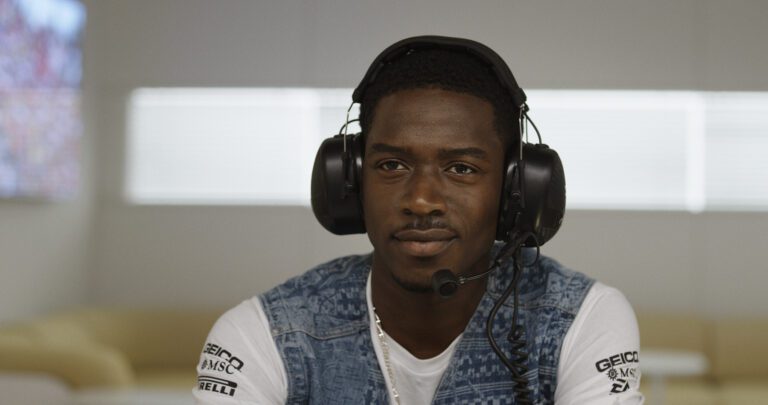How does one introduce the extensive body of work belonging to the New York-based casting director who’s a frequent collaborator of auteurs such as M. Night Shyamalan, Wes Anderson and Noah Baumbach? You could respectively mention Split, The Grand Budapest Hotel and Marriage Story. But then, don’t forget Kenneth Lonergan’s Oscar-winning feature Manchester by the Sea. That’s just the tip of the iceberg when it comes to Douglas Aibel’s casting credits, but we’re here to tell you more about the person behind the impressive film/TV résumé. Aibel made time to virtually sit down with Casting Networks and give insights into everything from how he works — including a window into casting the star-studded HBO Max series The Staircase — to what he’d be doing if an industry-related job was off the table.
It’s great to meet you via Zoom, Douglas, and I’d love to start off right at the beginning of your career journey. When was the moment you knew that casting was the job for you?
That’s an interesting question. As a kid growing up around New York, I would go to see plays in the city. And from a young age, I’d memorize everything I could about the actors in each show — to a rather excessive extent. [Laughs] Later on, I began my career in New York as an aspiring theater director and theater producer. I was a young artistic director of a young theater company, which meant that — for financial reasons — I was also casting all my own projects and workshops. That was back in the pre-internet days, so I had this sort of encyclopedia in my head of all the different actors I knew of all shapes and sizes. I discovered I had a knack for the casting side of things, so this career started off on a sort of parallel track with my role as a producer of theater in New York. As I began to get to know filmmakers, they started inviting me to cast features and then later TV series, so my way into casting sort of happened organically rather than with a sudden, light bulb moment.
That makes sense.
I’ve remained the artistic director of my theater company, the Vineyard Theatre, to this day, and I’ll say that New York actors have a certain quality to them. I mean, there are wonderful thespians all over the world, but there’s just this amazing community of artists in New York. And you get to know these actors inside and out. That makes you feel like you have a leg up as a casting director because you have the ability to really place actors as carefully and creatively as possible into the canvas of a film or TV series.
That’s a beautiful image you just painted. Now, what can you tell us about the process of assembling the Emmy-nominated cast for Antonio Campos’ The Staircase?
Antonio Campos is a wonderful artist. I’ve worked with him several times before, and he called me at the height of the pandemic to tell me about a massive project he wanted to work on together that was based on a very real tragedy. I had actually seen the documentary series about it, so I was already familiar with the Peterson case. Antonio just has this wonderfully open and generous spirit as a collaborator, so it was a very open casting process. One of the challenges that comes with casting a story within that sort of true crime genre, though, is the responsibility of working on a fictionalized version of a tragedy that affected many human beings. You strongly feel the need to get it right. Since The Staircase is not a documentary, we had to really approach each character as they were written and find people who could bring each role to life with grace, wit and a lot of heart. That meant getting actors who had the sensitivity and depth to play these fictionalized characters — based on real people — with all of their humanity, their strengths and their weaknesses.
That sounds like a tall order.
We also had an interesting challenge unique to this specific process, which involved casting a rather large nuclear family whose members traversed generations. There were different sets of biological parents for the children, and it was quite a task to keep track of how all the family members were connected to one another. Then as the series’ storyline extended to Germany and beyond, we were coordinating some international casting sessions during the height of the pandemic. That meant we were utilizing self-tapes and Zoom auditions. I particularly remember one virtual chemistry read for some of the family members, which involved actors in Los Angeles, New York and New Zealand. We had to find that sweet spot of approximately 20 minutes in a 24-hour period that worked for everyone in their different time zones. But once we did, each actor was able to create magic and chemistry through a screen, which was a unique and interesting part of this process to observe.
I bet!
The last thing I’ll say about working on The Staircase is that I was also casting a James Gray feature at the time — that’s out now — called Armageddon Time. It’s an autobiographical piece about his childhood that James wrote and directed, which meant every character in that story was also based on a very real person. So, I got to simultaneously work on both a film and a series that were each based on true experiences, creating a believable universe for each director.
Thanks for sharing those insights, and now it’s time for my favorite question. If someone made a film about your life story, which actor would you cast to play the role of Douglas Aibel?
I would say that if we all had our eyes closed, I would love to have Tom Hanks play me, even though it would definitely be a work of fiction. [Laughs] Otherwise, I would say maybe Paul Giamatti or Steve Guttenberg. But, I can honestly say that I don’t think anyone would pay any money to see a movie about me. That’s just not going to happen — it’s a fantasy project.
[Laughs] Well, I think those are great casting choices, regardless! Now, switching gears here, I have a true, get-to-know-you question. If in some hypothetical situation you weren’t a casting director, what would your profession be instead?
This is a tricky one because I’m sort of a multi-hyphenate in that I produce theater, along with doing casting and film. So, I would probably be in a role that’s still connected to the arts in some way. If I had to pick something outside the industry, I might go with graphic design since I’m very visually-oriented. Plus, I have random interests like horse racing, so maybe I’d be an odds-maker or something like that! [Laughs]
This is the first time I’ve gotten “horse racing odds-maker” as a response to that question, Douglas. How fun! And before we wrap, I’d love to hear what’s on your watchlist at the moment.
There are so many new shows and films on my list that I’d be hard-pressed to pick just one or two. I always try to find time at least once a year, though, to rewatch a classic show that had brilliant casting. Mad Men is a good example — it’s the epitome of a brilliantly conceptualized and realized drama. And The Mary Tyler Moore Show is possibly the best cast, acted, directed and written comedy series of all time. So, I like to periodically go back and rewatch shows like that to remind myself of what it looks like when all the elements of a show click and all the talent behind it culminates in this beautiful peak of achievement.
From his early days of building a mental “actors” encyclopedia to his passion for beautifully-executed series — both new and old — this has been a window into the person behind all the credits. Those interested in learning more about the impressive list of TV and film titles on his casting résumé can find them all listed on IMDb.
—
This interview has been edited and condensed.
Looking to get your big break? Sign up or login to Casting Networks and land your next acting role today!
Related articles:
Get to Know the Casting Director: Jennifer Venditti
My Casting Story: Sol Romo on ‘Law & Order: SVU’
Get to Know the Casting Director: Alexa L. Fogel













